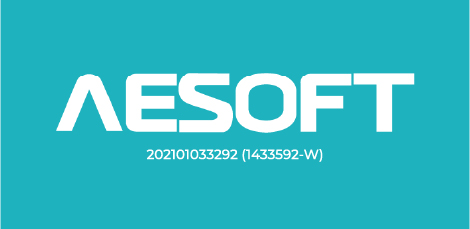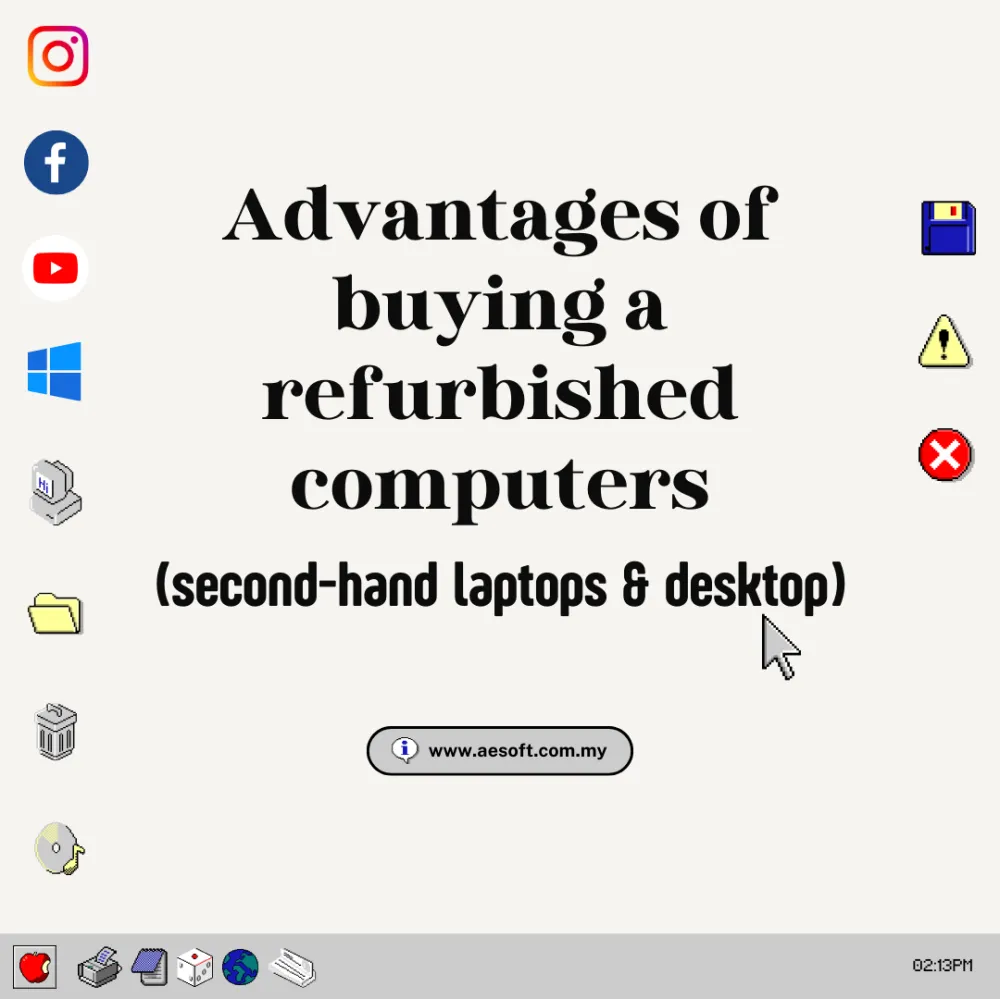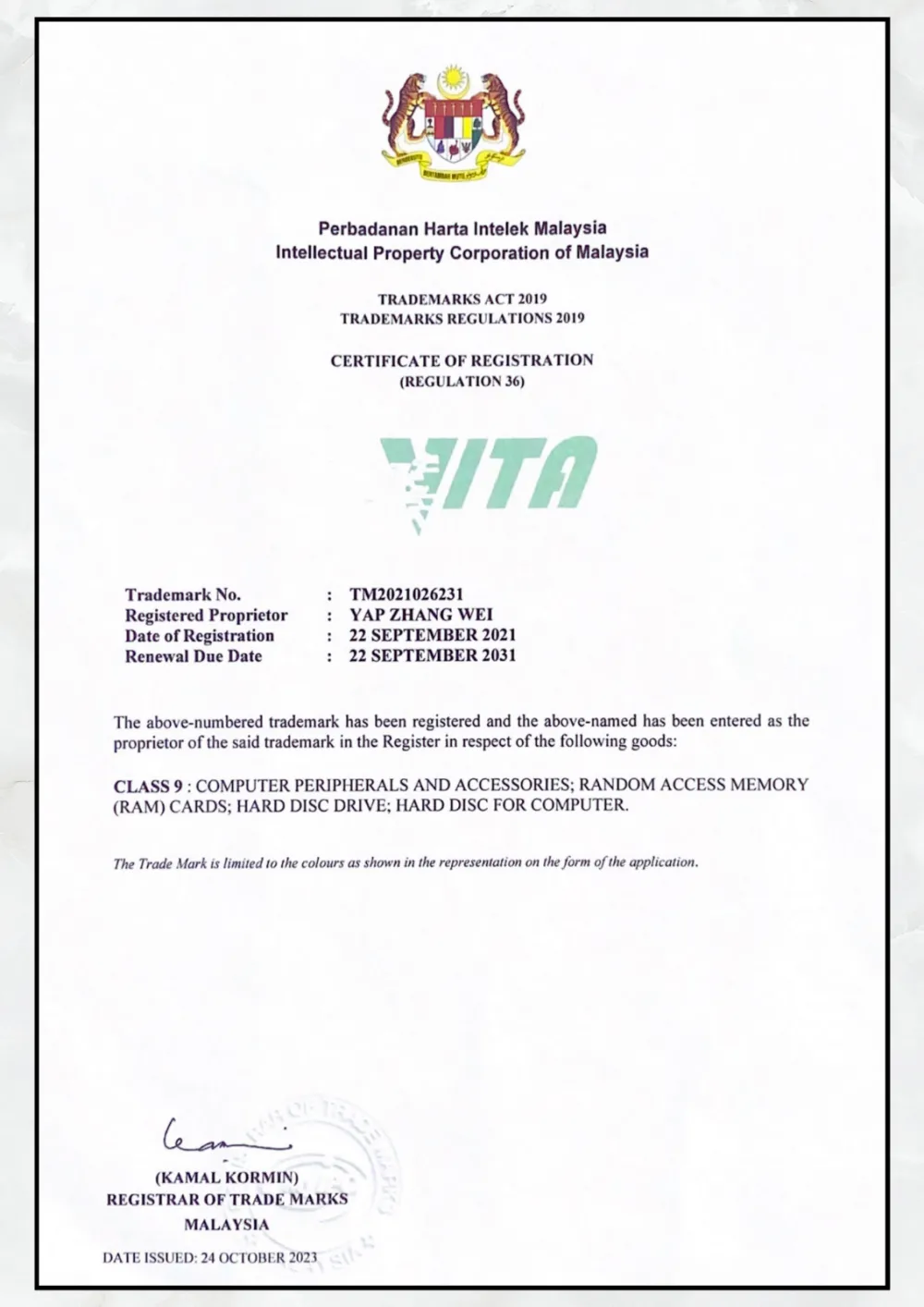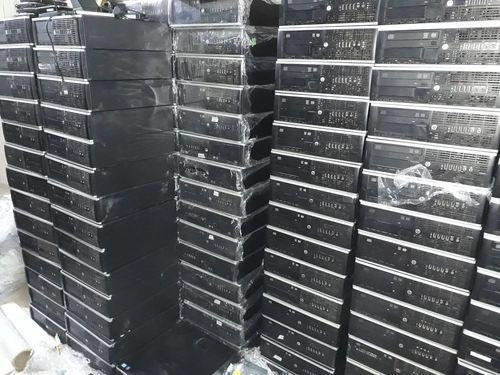GST Tax Code for Malaysia
GST Tax Code for Malaysia
"Memory: Recommended GST Tax Code For Malaysia". Surewine. N.p., 2015. Web. 18 Aug. 2016.
(a) GST Tax Code for Supply
SR 6% - Standard-rated supplies with GST charged.
(i) Tax Code: SR
(a) Additional GST Tax Code for Purchase
TX-NC 6% - GST incurred and choose not to claim the input tax.
TX-ER 6% - Input tax allowed on the acquisition of goods or services by local authority or statutory body.
IM-CG 6% - Import of goods with GST incurred for a capital goods acquisition.
IM-RE 6% - Import of goods with GST incurred that is not directly attributable to taxable or exempt supplies (Residual input tax).
NP 0% - Matters to be treated as neither a purchase of goods nor a purchase of services, and no GST incurred.
This refers to purchase from a person who qualifies for Flat Rate Schemes where Flat Rate Addition is charged at 2%. The Flat Rate Scheme (FRS) is applicable to farmer/fisherman/livestock breeder who is not registered under GST because his yearly turnover is below the prescribed threshold limit (RM500,000) and he is not voluntarily registered under GST.
(ii) Tax Code: TX-NC
This refer GST incurred as purchases and the company choose not to claim the input tax. This tax code is not mapping with field 6a & 6b GST03 return and will turns as an expenses of the company.
(iii) Tax Code: TX-ER
This refer GST incurred as purchases and the company allowed to claim input tax on the acquisition of goods or services by local authority or statutory body. By referring Reg.49 of GST Regulations 2014, where any local authority or statutory body has acquired goods or services to perform its regulatory and enforcement functions, the local authority or statutory body is entitled to a credit for so much of its input tax that is allowable and reasonable to be attributable to the supplies made or to be made by it.
This refers to importation of goods with GST incurred which the company claim for input tax and capitalize the acquired of imported capital goods as their assets. The GST amount is calculated on the value which includes cost, insurance and freight plus the customs duty payable (if any) that based on the import declaration form (Customs Form No. 1 (K1), and other reference documents). The GST registrant which claiming the imported capital goods has to declare the value of this claimed capital goods under field (6a & 6b), and field (16) of GST-03 return.
This tax code is applicable for matters to be treated as neither a purchase of goods nor a purchase of services, and no GST incurred. For example, the users can assign this tax code for purchase under Second Schedule of GST Act 2014, supplies that treated as neither a supply of goods nor a supply of services such as purchase of Transfer of Going Concern (TOGC), purchase from any society or similar organization, and purchase of goods or services made within or between designated areas based in Sec. 155 of GST Act 2014.
2. Recommended additional tax code listings for Supply
(a) Additional GST Tax Code for Supply
SR-JS 0% - Supplies under Approved Jeweller Scheme (AJS)
(b) Explanation on the Additional GST Tax Code for Supply
Standard-rated supplies under Margin Scheme. A margin scheme allows an approved person as defined under regulation 75 of the Goods and Services Tax Regulation 2014 (GSTR) who meets all the conditions imposed under regulation 77 of the GSTR 2014 to calculate and charge GST on the margin i.e. the difference between the price at which the goods are supplied (selling price) and the price at which the goods were acquired (purchase price). If there is no margin (because the purchase price exceeds or equals to the selling price), then no GST is imposed for such supply.
Based on Sec. 73(2) Approved Jeweller Scheme GST Act 2014, any taxable person who makes any prescribed supply of goods to the approved jeweler shall charge tax and is not liable to account for tax on the prescribed supply. Any taxable person (approved jeweller) is not required to pay the tax charged to him by the supplier but shall account for the tax in his GST-03 return. This tax code is applicable only for approved person (Gold Bullion House/Bank) of Approved Jeweller Scheme.
"Memory: Recommended GST Tax Code For Malaysia". Surewine. N.p., 2015. Web. 18 Aug. 2016.
This section provides a list of GST tax codes for Purchase and Supply. These tax code listings are recommendation to allow proper classification of purchase and supply transactions based on common scenarios encountered by GST-registered businesses. The tax code listings is not intend to be prescriptive nor comprehensive.
1. Recommended GST Tax Code listings for Purchase
(a) GST Tax Code for Purchase
TX 6% - Purchases with GST incurred at 6% and directly attributable to taxable supplies.
TX-CG 6% - Purchase with GST incurred for capital goods acquisition.
TX-ES 6% - Purchase with GST incurred directly attributable to non incidental exempt supplies. (Note: Replace TX-N43)
TX-IES 6% - Purchase with GST incurred directly attributable to incidental exempt supplies. (Note: Replace TX-E43)
TX-RE 6% - Purchase with GST incurred that is not directly attributable to taxable or exempt supplies. (Applicable for partially exempt trader/mixed supplier only)
IM 6% - Import of goods with GST incurred. (By referring Customs Form No. 1 (K1),and/or other reference documents)
IS 0% - Imports of goods under Approved Trader Scheme (ATS) whereas the payment of GST chargeable is suspended on the goods imported.
BL 6% - Purchases with GST incurred but not claimable (Dis-allowance of Input Tax) (e.g. medical expenses for staff).
NR 0% - Purchase from non GST-registered supplier with no GST incurred.
ZP 0% - Purchase from GST-registered supplier with no GST incurred.
EP 0% - Purchases exempted from GST. (e.g. purchase of residential property or financial services)
OP 0% - Purchase transactions which is out of the scope of GST legislation (e.g. purchase of goods overseas).
RP 0% - Relief Purchase under GST legislation. (e.g: purchase of RON 95 petrol & Diesel)
(New code @ 20/07/16)
GP 0% - Purchase transactions which disregarded under GST legislation (e.g. purchase within GST group registration).
AJP 6% - Any adjustment made to Input Tax (e.g: Bad Debt Relief & other input tax adjustment).
(b) Explanation on the Recommended GST Tax Code for Purchases
(i) Tax Code: TX
This refers to goods and/or services purchased from GST registered suppliers. The prevailing GST rate is 6% with effect from 01/04/2015. As it is a tax on final consumption, a GST registered trader will be able to claim credits for GST paid on goods or services supplied to them for the furtherance of businesses. The recoverable credits are called input tax. Examples include goods or services purchased for business purposes from GST registered traders, imported services & and etc.
(ii) Tax code: TX-CG
This tax code refer to purchase with GST incurred at 6% for all capital goods acquired that is claimable regardless the value of the goods. For example, land and buildings, equipment, machinery, vehicles, or others capital goods which the company claims for input tax and capitalize the acquired capital goods as their assets. The GST registrant who claiming the capital goods has to declare the value of this claimed capital goods under field (6a &6b), and field (16) of GST-03 return.
(iii)Tax Code: TX-ES
This is only applicable to GST registered trader that makes both taxable and exempt supplies (or commonly known as partially exempt trader). TX-ES should be used for transactions involving the payment of input tax that is directly attributable to the making non-Incidental Exempt Supplies. TX-ES only include in field (6a & 6b) GST- 03 return once the de minimis rule is fulfilled. Example for this tax code is your company bought wall paper for your residential apartment rented to others and purchase costs are already included 6% GST, but you are not eligible to claim the amount of input tax as it would be applied directly to make exempt supply (rental of resident apartment). Please refer to APPENDIX 5 for more details on specification for de minimis rule. (Note: Replace TX-N43)
(iv)Tax Code: TX-IES
This refers for transactions involving the payment of input tax attributable to the incidental exempt financial supplies as input tax attributable to taxable supplies. This means that the registered person is entitled to claim any input tax that is attributable to the making of the following incidental exempt financial supplies. Example of usage for this tax code are such as purchased a security box for the accounts clerk to deposit daily earnings of the company in a bank, hiring of security firm to transfer/deposit money into financial institutions (bank), sells lots of shares through a remisier and GST charged on the commission, and incurred GST on the legal agreements and other expenses related to a financial loans. (Note: Replace TX-E43)
(v) Tax Code: TX-RE
This is only applicable to GST registered trader that makes both taxable and exempt supplies (or commonly known as partially exempt trader/mixed supplier). This refers to GST incurred that is not directly attributable to the making of taxable or exempt supplies (or commonly known as residual input tax). However, a mixed supplier can claim the full amount of the residual input tax incurred if the amount of exempt supply fulfilled the de minimis rule. Otherwise, he is required to apportion the residual input tax incurred accordingly. The example is such as residual input tax on operation overhead for a development of mixed property (properties that including residential and commercial). Please refer to APPENDIX 5 for more details on specification for partial exemption.
This is only applicable to GST registered trader that makes both taxable and exempt supplies (or commonly known as partially exempt trader/mixed supplier). This refers to GST incurred that is not directly attributable to the making of taxable or exempt supplies (or commonly known as residual input tax). However, a mixed supplier can claim the full amount of the residual input tax incurred if the amount of exempt supply fulfilled the de minimis rule. Otherwise, he is required to apportion the residual input tax incurred accordingly. The example is such as residual input tax on operation overhead for a development of mixed property (properties that including residential and commercial). Please refer to APPENDIX 5 for more details on specification for partial exemption.
(vi)Tax Code: IM
This refers to all goods imported into Malaysia which are subject to GST. The GST amount is calculated on the value which includes cost, insurance and freight plus the customs duty payable (if any) that based on the import declaration form (Customs Form No. 1 (K1), and other reference documents). This tax code applicable for all GST registrant unless the imported goods are for storage in a licensed warehouse or Free Trade Zone, or imported by GST registrant which is approved person under special scheme such as Warehouse Scheme, or Approved Trader Scheme.
(vii) Tax Code: IS
This refers to the total value of goods imported under Approved Trader Scheme (ATS) where GST is suspended when the trader imports the goods into Malaysia. This scheme is designed to ease the cash flow of Trader Scheme (ATS) who has significant imports, and the approved person under ATS must declare the total value of the goods imported and suspended GST amount under ATS in field (14) & field (15) of GST-03 return.
(viii) Tax Code: BL
This refers to GST incurred by a business but GST registered trader is not allowed to claim input tax incurred as prescribe in Regulation 36 Disallowance of Input Tax, GST Regulations 2014. Disallowance of Input tax are such as the supply to or importation of a passenger car, and the supply of goods or services relating to repair, maintenance and refurbishment of a passenger motor car.
(ix)Tax Code: NR
This refers to the purchase of goods and services from non-GST registered supplier/trader. The supplier/trader that not registered for GST is not allowed to charge and collect GST.
(x) Tax Code: ZP
This refers to goods and services purchased from GST registered suppliers whereas GST is charged at zero-rated or 0%. This is also commonly known as zero-rated purchases. The list of zero-rated purchase as prescribed in GST (Zero-Rated Supply) Order 2014.
(xi)Tax Code: EP
This refers to the purchase in relation to exempt supply such as residential properties or certain financial services where there no GST was charged as it is exempt from GST. Consequently, there is no input tax would be incurred on these supplies. The examples on supply of goods and services as an exempt supply are prescribed in GST (Exempt Supply) Order 2014.
(xii) Tax Code: OP
This refers to the purchase of goods that being classified as outside the scope of GST. The example acquisition of out of scope purchase are such as non-business purchase, purchase of services made by a person who does not belong in Malaysia other than the supply of imported services, purchase from the government supply except selected government supplies prescribed in the GST (Application To Government) Order 2014, and purchase of goods made for a supply that outside Malaysia.
(xiii) Tax Code: RP
This refers to purchase of goods which given relief from charging and payment of GST. Example for this tax code are purchase of RON95 petrol, diesel and other relief supply that been given relief from GST as prescribed under GST (Relief) Order 2014.
(xiv) Tax Code: GP
This refers to purchase of transactions which disregarded from charging and payment of GST under GST legislation. The examples are purchase within GST group registration, purchase made within a Warehouse Scheme & others disregarded supplies.
(xv) Tax Code: AJP
Any adjustment made to Input Tax such as bad debt relief, and other input tax adjustments such as longer period adjustment and partial exemption adjustments. The GST registrant who claiming the Bad Debt Relief (AR only) has to declare the value of this claimed Bad Debt under field (6b), and field (17) of GST-03 return. Please refer to APPENDIX 5 for more details on specification for partial exemption adjustments. (This tax code is NOT applicable for credit/debit note).
(Note: For more information on input tax credit, dis-allowance input tax, out of scope purchase, please refer to Guide on Input Tax Credit. Please refer to GST legislations (GST Acts 2014, GST Regulations 2014, GST (Exempt Supply) Order 2014) and Specific Guide (Guide on Partial Exemption & Guide on Input Tax Credit) for details on apportionment and de minimis rule.)
2. Recommended GST Tax Code listings for Supply
(a) GST Tax Code for Supply
SR 6% - Standard-rated supplies with GST charged.
ZRL 0% - Local supply of goods or services which are subject to zero rated supplies.
ZDA 0% - Exportation of goods from Malaysia to Designated Area (Pulau Langkawi, Labuan, & Pulau Tioman) which are subject to zero rated supplies. (By referring Customs Form No. 2 (K2), and/or other reference documents)
ZRE 0% - Exportation of goods or services which are subject to zero rated supplies. (By referring Customs Form No. 2 (K2),and/or other reference documents)
DS 6% - Deemed supplies (e.g. transfer or disposal of business assets without consideration).
OS 0% - Out-of-scope supplies under GST legislations.
ES 0% - Exempt supplies under GST legislations.
IES 0% - Incidental exempt supplies under GST legislations. (Note: Replace ES43)
RS 0% - Relief supplies under GST legislations.
GS 0% - Disregarded supplies under GST legislations.
AJS 6% - Any adjustment made to Output Tax (e.g :Longer period adjustment, Bad Debt recover, outstanding invoice more than 6 months & other output tax adjustments).
(b) Explanation on the Recommended GST Tax Code for Supply
(i) Tax Code: SR
A GST registered supplier must charge and account GST at 6% for all sales of goods and services made in Malaysia unless the supply qualified for zero-rated, exemption or falls outside the scope of the GST legislation. The GST collected from customer is called output tax. The value of sale and corresponding output tax must be reported in field (5a & 5b) in GST-03 return
(ii) Tax Code: ZRL
Zero-rated supply is a taxable supply which is subject to a rate of zero percent. A GST registered supplier can zero-rated (i.e. charging GST at 0%) certain local supply of goods and services and the supplier has to declare the value of this zero rated supply under field (10) of GST-03 return. Examples of zero-rated supply as prescribed based on tariff code in GST (Zero-rated Supply) Order 2014 such as milled-rice, fresh fruit, and live animals (cattle, buffalo, goat, sheep and swine).
(iii) Tax Code: ZDA
This refers on the supply of goods from Malaysia to Designated Area (Pulau Langkawi, Labuan, & Pulau Tioman) that qualify for zero-rate if the movement is supported with Customs No. 2 Form which stated the supplier’s name and address as the consignor and the recipient’s name and address in DA as the consignee, with supporting documents such as invoice, packing list, etc. Thus, exportation of goods from Malaysia to Designated Area is subject to zero-rated supplies and the supplier has to declare the value of this export under field (10) of GST-03 return. For more information, please refer to GST (Zero-Rated Supply) Order 2014 and Guide on Designated Area.
(iv) Tax Code: ZRE
A GST registered supplier can zero-rated (i.e. charging GST at 0%) the supply of goods that qualify for zero-rate if the movement of goods is supported with Customs No.2 Form (K2) which stated the supplier’s name and address as the consignor and the recipient’s name and address in overseas recipient as the consignee. Besides that, the supply of services will fall within the description of zero-rated if the services is attach with supporting documents such as invoice for an international services. Examples includes sale of air-tickets, and international freight charges. The supplier has to declare the value of this export under field (11) of GST-03 return.
(v) Tax Code: DS
GST is chargeable on supplies of goods and services, and applicable if there is a goods or services provided with a consideration paid in return. However, there are situations where a supply has taken place even though no goods or services are provided or no consideration is paid. These are known as deemed supplies. The examples for deemed supplies include free gifts (more than RM500), disposal of business assets without consideration, and imported services.
(vi) Tax Code: OS
Out of scope supply is a supply which is not within the ambit or boundary of GST, and therefore GST is not chargeable on such supply. Examples of out of scope supply are such as non-business supply, and supply by statutory bodies and local authorities with respect to regulatory and enforcement functions, and supply of goods made outside Malaysia, government supply except selected government supplies prescribed in the GST (Application To Government) Order 2014.
(vii) Tax Code: ES
This refers to supplies which are exempt under GST legislation. Exempt supply is a supply which is not subject to GST, and no GST is chargeable on such supply. Examples of exempt supply of services are domestic transportation of passengers for mass public transports i.e. by rail, ship, boat, ferry, express bus, stage bus, school bus, feeder bus, workers’ bus and taxi, toll highway, private education and private health services. Examples of exempt supplies of goods are residential properties, land for agricultural use and land for general use as burial ground, playground or religious building. The supplier has to declare the value of this exempt supply under the field (12) of GST-03 return.
(viii) Tax Code: IES
This refers to exempt supplies made under incidental exempt supplies and applicable for wholly taxable supplier and partially exempt trader/mixed supplier. Incidental exempt supply is a supply of financial services made by a registered person who is not in the business of making the financial services. Incidental Exempt Supplies as prescribed in Reg. 40, GST Regulations 2014 that include interest income from deposits placed with a financial institution in Malaysia, interest received from loans provided to employees also include factoring receivables, and realized foreign exchange gains. The supplier may declare the value of this incidental exempt supply under field (12) of GST-03 return. (Note: Replace ES43)
(ix)Tax Code: RS
This refers to supplies which are supply given relief from GST. Examples as in Goods and Services Tax (Relief) Order 2014 such as educational institutions that given relief from the payment of GST on acquisition of goods. The value of the relief supplies has to be declare under field (13) of GST-03 return.
(x) Tax Code: GS
In certain circumstances, a taxable supply may be disregarded for the purpose of GST. This refers to supplies which are disregarded under GST legislation. These supplies include supply of goods or services between members of a GST group, supply of goods within warehouses under the Warehousing Scheme, supply of goods by a principal who is a taxable person to an agent who is acting in his own name as an auctioneer or others disregard supplies under GST legislation. The value of disregarded supplies has to be declare under field (13) of GST-03 return.
(xi) Tax Code: AJS
This refer any adjustment made to output tax. These include longer period adjustment, bad debt recovered, outstanding invoices more than 6 months & other output tax adjustments such as partial exemption adjustments. The GST registrant who account the output tax on Bad Debt Recovered (AR only) has to declare the value of this Bad Debt under field (5b), and field (18) of GST-03 return. Please refer to APPENDIX 5 for more details on specification for partial exemption adjustments. (This tax code is NOT applicable for credit/debit note).
(Note: Please refer to GST (Zero-Rated Supply) Order 2014, Guide on Supply for detailed on zero rated supplies. Please refer to GST legislation (GST Acts 2014, GST Regulations 2014, GST (Exempt Supply) Order 2014) and Specific Guide (Guide on Supply & Guide on Input Tax Credit) for details on exportation, deemed supply, out of scope supplies, exempt supplies, and incidental exempt supply.)
Recommended Additional GST Tax Code for Purchase and Supply
The company can add new tax code based on the requirement of their businesses. The recommended tax code based on common scenarios of GST can be described as follows:
1. Recommended additional tax code listings for PurchaseRecommended Additional GST Tax Code for Purchase and Supply
The company can add new tax code based on the requirement of their businesses. The recommended tax code based on common scenarios of GST can be described as follows:
(a) Additional GST Tax Code for Purchase
TX-FRS 2% - Purchase under Flat Rate Scheme.
TX-NC 6% - GST incurred and choose not to claim the input tax.
TX-ER 6% - Input tax allowed on the acquisition of goods or services by local authority or statutory body.
IM-CG 6% - Import of goods with GST incurred for a capital goods acquisition.
IM-RE 6% - Import of goods with GST incurred that is not directly attributable to taxable or exempt supplies (Residual input tax).
NP 0% - Matters to be treated as neither a purchase of goods nor a purchase of services, and no GST incurred.
(b) Explanation on the Additional GST Tax Code for Purchases
(i) Tax Code: TX- FRS
This refers to purchase from a person who qualifies for Flat Rate Schemes where Flat Rate Addition is charged at 2%. The Flat Rate Scheme (FRS) is applicable to farmer/fisherman/livestock breeder who is not registered under GST because his yearly turnover is below the prescribed threshold limit (RM500,000) and he is not voluntarily registered under GST.
(ii) Tax Code: TX-NC
This refer GST incurred as purchases and the company choose not to claim the input tax. This tax code is not mapping with field 6a & 6b GST03 return and will turns as an expenses of the company.
(iii) Tax Code: TX-ER
This refer GST incurred as purchases and the company allowed to claim input tax on the acquisition of goods or services by local authority or statutory body. By referring Reg.49 of GST Regulations 2014, where any local authority or statutory body has acquired goods or services to perform its regulatory and enforcement functions, the local authority or statutory body is entitled to a credit for so much of its input tax that is allowable and reasonable to be attributable to the supplies made or to be made by it.
(iv) Tax Code: IM-CG
This refers to importation of goods with GST incurred which the company claim for input tax and capitalize the acquired of imported capital goods as their assets. The GST amount is calculated on the value which includes cost, insurance and freight plus the customs duty payable (if any) that based on the import declaration form (Customs Form No. 1 (K1), and other reference documents). The GST registrant which claiming the imported capital goods has to declare the value of this claimed capital goods under field (6a & 6b), and field (16) of GST-03 return.
(v) Tax Code: IM-RE
This refer to all goods imported into Malaysia which are subject to GST that is not directly attributable to taxable or exempt supplies (Residual input Tax). This is only applicable to GST registered trader that makes both taxable and exempt supplies (or commonly known as partially exempt trader/mixed supplier). The GST amount is calculated on the value which includes cost, insurance and freight plus the customs duty payable (if any) that based on the import declaration form (Customs Form No. 1 (K1), and other reference documents), and the company is required to apportion the residual input tax incurred accordingly based on partial exemption specifications.
This refer to all goods imported into Malaysia which are subject to GST that is not directly attributable to taxable or exempt supplies (Residual input Tax). This is only applicable to GST registered trader that makes both taxable and exempt supplies (or commonly known as partially exempt trader/mixed supplier). The GST amount is calculated on the value which includes cost, insurance and freight plus the customs duty payable (if any) that based on the import declaration form (Customs Form No. 1 (K1), and other reference documents), and the company is required to apportion the residual input tax incurred accordingly based on partial exemption specifications.
(vi) Tax Code: NP
This tax code is applicable for matters to be treated as neither a purchase of goods nor a purchase of services, and no GST incurred. For example, the users can assign this tax code for purchase under Second Schedule of GST Act 2014, supplies that treated as neither a supply of goods nor a supply of services such as purchase of Transfer of Going Concern (TOGC), purchase from any society or similar organization, and purchase of goods or services made within or between designated areas based in Sec. 155 of GST Act 2014.
2. Recommended additional tax code listings for Supply
(a) Additional GST Tax Code for Supply
SR-MS 6% - Standard-rated supplies under Margin Scheme.
SR-JS 0% - Supplies under Approved Jeweller Scheme (AJS)
OS-ER 0% - Out-of-scope supplies for Enforcement and Regulatory functions.
OS-OV 0% - Out-of-scope supplies between overseas country with other overseas country.
NS 0% - Matters to be treated as neither a supply of goods nor a supply of services, and no GST chargeable.
(b) Explanation on the Additional GST Tax Code for Supply
(i) Tax Code: SR-MS
Standard-rated supplies under Margin Scheme. A margin scheme allows an approved person as defined under regulation 75 of the Goods and Services Tax Regulation 2014 (GSTR) who meets all the conditions imposed under regulation 77 of the GSTR 2014 to calculate and charge GST on the margin i.e. the difference between the price at which the goods are supplied (selling price) and the price at which the goods were acquired (purchase price). If there is no margin (because the purchase price exceeds or equals to the selling price), then no GST is imposed for such supply.
(ii) Tax Code: SR-JS
Based on Sec. 73(2) Approved Jeweller Scheme GST Act 2014, any taxable person who makes any prescribed supply of goods to the approved jeweler shall charge tax and is not liable to account for tax on the prescribed supply. Any taxable person (approved jeweller) is not required to pay the tax charged to him by the supplier but shall account for the tax in his GST-03 return. This tax code is applicable only for approved person (Gold Bullion House/Bank) of Approved Jeweller Scheme.
(iii) Tax Code: OS-ER
Where any local authority or statutory body has perform its enforcement and regulatory functions, the statutory bodies and local authorities can assign OS-ER with respect to their supply of enforcement and regulatory functions.
Where any local authority or statutory body has perform its enforcement and regulatory functions, the statutory bodies and local authorities can assign OS-ER with respect to their supply of enforcement and regulatory functions.
(iv) Tax code: OS-OV
This refers supply of goods made outside Malaysia. This OS-OV applicable for supply of goods made/transfer from country outside Malaysia to other country outside Malaysia.
(v) Tax code: NS
This refers supplies treated as neither a supply of goods nor a supply of services and no GST chargeable. Based in Second Schedule of GST Act 2014, supplies that treated as neither a supply of goods nor a supply of services such as Transfer of Going Concern (TOGC), pension, provident or social security fund, and supply by any society or similar organization. This tax code also applicable for supply of goods or services made within or between designated areas based in Sec. 155 of GST Act 2014, that notwithstanding section 9, no tax shall be charged on any taxable supply of goods or services made within or between the designated areas unless the Minister otherwise directs in an order under section 160.
This refers supplies treated as neither a supply of goods nor a supply of services and no GST chargeable. Based in Second Schedule of GST Act 2014, supplies that treated as neither a supply of goods nor a supply of services such as Transfer of Going Concern (TOGC), pension, provident or social security fund, and supply by any society or similar organization. This tax code also applicable for supply of goods or services made within or between designated areas based in Sec. 155 of GST Act 2014, that notwithstanding section 9, no tax shall be charged on any taxable supply of goods or services made within or between the designated areas unless the Minister otherwise directs in an order under section 160.
18 Aug 2016










